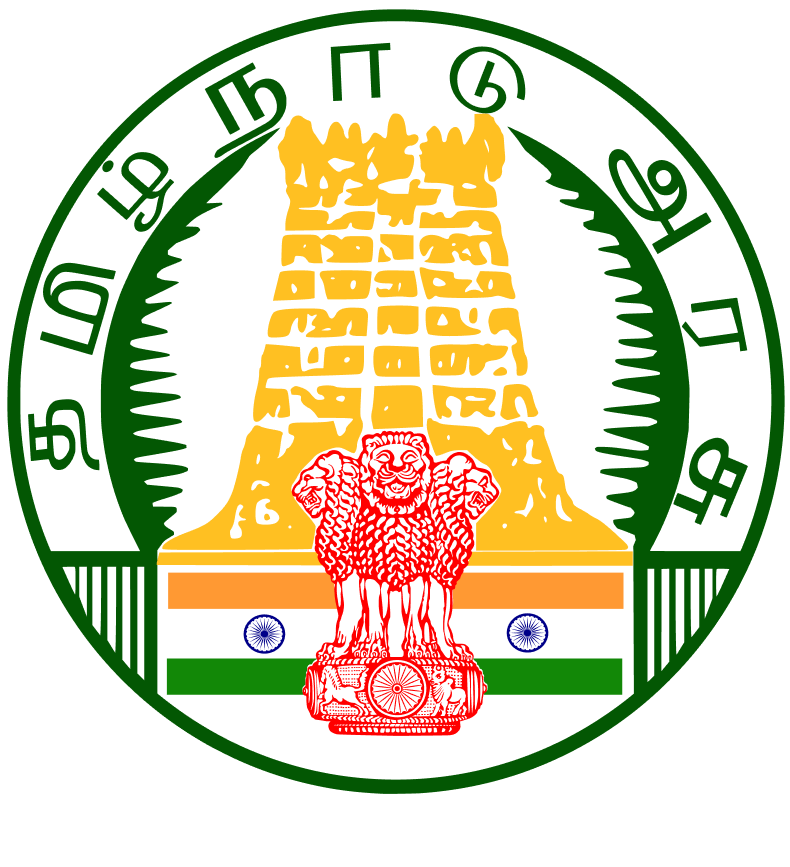Ongoing Studies
Economic Valuation of Ecosystem Services of 61 Prioritised Wetlands Identified
Institution: Madras Institute of Development Studies (MIDS)
Overview: The proposed study aims to estimate the economic value of ecosystem services for 61 prioritized wetlands in Tamil Nadu using a Total Economic Valuation (TEV) framework. By integrating inputs from ecology and hydrology, the study will assess how these wetlands mitigate climate change impacts, such as sea-level rise. The valuation will focus on various ecosystem services, including flood regulation and water purification. Additionally, the study will evaluate changes in local livelihoods resulting from wetland improvements. The findings will inform conservation strategies and policy decisions for sustainable wetland management.
Development and Deployment of Rhizhophora Hybrids to Tackle Hyper salinity: Solutions to Climate Change Resilience, Mitigation and Improved Productivity
Institution: Institute of Forest Genetics and Tree Breeding (IFGTB), Coimbatore
Overview:The project aims to identify and deploy mangrove genetic resources to address hypersalinity and enhance overall mangrove productivity. It focuses on developing control pollination and propagation techniques, selecting climate-resilient mangrove genetics for future afforestation programs, and strategizing mitigation measures.
Completed Studies
Assessing the population status and temporal patterns of migratory birds in Vaduvoor Bird Sanctuary, Tamil Nadu
Institution: Salim Ali Centre for Ornithology and Natural History (SACON), Coimbatore
Overview: This study focuses on the Vaduvoor Bird Sanctuary, a wetland ecosystem in India. The sanctuary is home to many resident and migratory bird species, some of which are globally threatened. Recognizing the importance of this sanctuary, researchers aim to achieve several objectives through this study. These objectives include assessing the distribution patterns of the birds, studying the water quality and plant and animal life within the sanctuary, evaluating threats like poaching, and creating a training program for sanctuary staff. Ultimately, this study aims to inform effective conservation policies for the Vaduvoor Bird Sanctuary.
Eco restoration of Coimbatore Lakes with Floating Wetlands
Institution: Tamil Nadu Agricultural University (TNAU), Coimbatore
Overview: The study explores a cost-effective method for restoring lakes in Coimbatore, India. These lakes, vital freshwater resources, are threatened by pollution from sewage and waste. The project focuses on a technology called ``Floating Wetlands.`` These human-made structures are planted with water-loving plants that act as natural filters, removing pollutants and nutrients from the lake water. This process cleans the water and helps prevent further degradation. The project will assess the effectiveness of Floating Wetlands in improving water quality in Coimbatore's lakes. An additional benefit of this method is the potential to boost biodiversity by creating a habitat for birds, native plants, and animals. Ultimately, the study aims to develop a sustainable and cost-effective approach for restoring the health of Coimbatore's lakes.
Economic valuation of ecosystem services: A study of eighty prioritization wetlands
Institution: Tamil Nadu State Wetland Authority, Chennai
Overview: The study in Tamil Nadu assesses the economic values of 80 prioritized wetlands, focusing on non-market ecosystem services like provisioning, regulating, cultural, and supporting services. It aims to highlight economic significance, and linkages to livelihoods, inform evidence-based policies, and explore market-based approaches for sustainable wetland management. Objectives include estimating benefits, aiding decision-making bodies, analyzing impacts on livelihoods, and considering innovative institutional approaches.
Delineation of Zone of Influence of three selected wetlands in TN
Institution: Tamil Nadu State Wetland Authority, Chennai
Overview: The Tamil Nadu State Wetland Authority aims to safeguard 141 wetlands, including Vadamaneri, Valathy, and Tenneri Lakes. Objectives of this study include boundary demarcation, land use analysis, stakeholder dependency assessment, biodiversity evaluation, and proposing management strategies, aligning with the Wetlands (Conservation and Management) Rules, 2017.
Criteria for wetland prioritization and framework for wetland monitoring in TN
Institution: Salim Ali Centre for Ornithology and Natural History (SACON), Coimbatore
Overview: The study highlights the critical role of wetlands globally and in India, focusing on Tamil Nadu’s situation with limited water resources. It outlines the significance of wetlands, their ecological value, and the threats they face due to human activities. The study aims to comply with Wetland Conservation Rules by identifying and prioritizing wetlands, emphasizing the need for conservation and sustainable management to protect these vital ecosystems.
Estimating the Total Economic Value (TEV) of an Urban Wetland: A Case study of Pallikaranai Marsh in Chennai City
Institution: Madras Institute of Development Studies (MIDS)
Overview: This study delves into the economic value of wetlands, focussing on the Pallikaranai marsh in Chennai. By estimating the total economic value of this ecosystem, the research aims to illuminate the trade-offs between wetland utilization and welfare, evaluating the impact of policy measures on the marsh’s TEV using various economic valuation methods.

